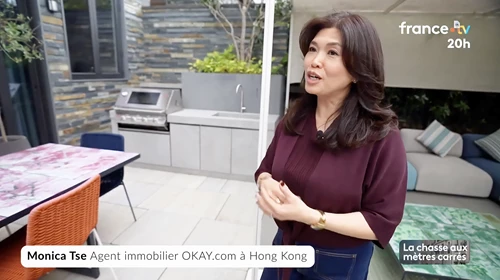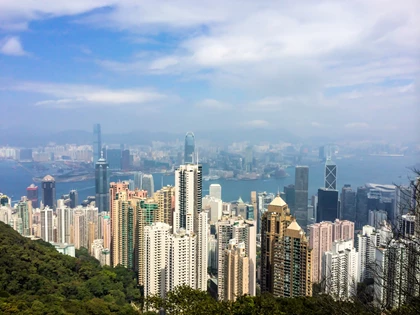
12 May 2020 - They say that the first casualty of war is the truth. Today with the current full throttle global war on the corona virus underway, predictions of future events often seem to be negatively overblown and exaggerated.
Take for example New York’s Governor Anthony Cuomo in the US who initially said his state needed 30,000 respirators to help corona virus patients there. That number turned out to be too high by an order of magnitude. As it turned out, the truth is New York only needed about 6,000 units. Now the Governor is donating respirators to other states (a smart move, politically).
Here in Hong Kong as well, while the Territory has seen real estate prices creep downwards slightly, with a few highly publicized cases of significant discounts, the market has remained largely resilient given the severity of the corona virus situation.
This is especially true with regard to homeowners’ falling into negative equity on their properties. Despite its global nature and the draconian measures being taken to reign in the current virus, compared to the SARS outbreak of 2003, today home owners have much less risk of going into negative equity with their homes.
Hong Kong Financial Secretary Paul Chan Mo-po notes that with respect to the property market, conditions are much better now than during the SARS outbreak, and homeowners face a lower risk of facing negative equity or loan defaulting.
He says the coming market adjustment would be far more modest than what Hong Kong faced during the Asian financial crisis in 1997 and the outbreak of severe acute respiratory syndrome (SARS) in 2003. During those times, owners had a hard time paying outstanding mortgages that suddenly became larger than the value of their homes.
“Back then, more than 100,000 households found themselves in negative equity territory. However, the situation now is very different from the period between 1997 to 2003,” he said.

Secretary Chan alludes to stronger fundamentals now in the local property market than when SARS hit the Territory and took nearly 250 lives, despite the chaos being wreaked by the corona pandemic today. It is forthis reason he says that government authorities have avoided major course corrections in terms of adjusting cooling policies.
Given the current circumstances, he adds that the government may still actively encourage banks to be “more accommodative” with new owners in terms of payments and will continue a policy of steadily releasing land for office development, despite price pressures, to better meet demand.
Chan adds that “The drop in the market has been in order, and we are not under a big economic bubble.” He is confident that Hong Kong can weather the fiscal downturn caused by the Covid-19 pandemic.
Secretary Chan also commented on the tight supply of private homes over the past decade with just 12,000 to 18,000 new units coming onto the market each year. This is in contrast to the excess that occurred through much of the 2000s. Speculation has been under tighter control following the government’s introduction of a host of effective cooling measures.
“The current atmosphere in the market is different,” he said. “We do not see lots of buyers rushing into the market at a high price all at the same time as we’ve seen in recent years.”
In 1997 there were 170,000 home purchase transactions, but that number fell to only about 50,000 to 60,000 each year between 2013 and 2019. That dampening of activity came about as a result of four new stamp duties, including one designed to deter short-term ownership plus a surcharge on non-permanent residents and corporate purchasers. However this also limited the amount of financial risk inherently built within Hong Kong’s homeownership in recent years as prices have risen past historical highs.
Even with the confidence Chan has in the local market, he cites two important risk caveats that can’t be overlooked. “When people ask if there will be another plunge in the market, I would like to say one risk factorlies with our social stability, such as the anti-government protests last year … [affecting] confidence in the market.” He also notes the increase in joblessness as another risk, which is why the government was, as Chan puts it, - “paying all efforts to safeguard employment.”
Things may be bad now but given a closer look, they’re not as bad as many may believe. This is in part why prices haven’t fallen more in the last 9 months, and why they may fall less than some people expect before buyers move back in and stabilize the market.




